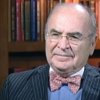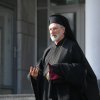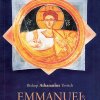Nezaboravni susreti Branka Mikašinovića
Glas Amerike: Kako i kada ste došli na ideju da sastavite ovu kolekciju?
Mikašinović: Ideja o pisanju ove knjige postojala je duže vreme. Ja sam svojevremeno u američko-srpskom časopisu "Srpski svet", koji izlazi u Tusonu u Arizoni i piše o našim doseljenicima i srpskoj tradiciji tog vremena, pročitao podatke o Srbima koji su se doseljavali u Ameriku početkom prošlog veka. Te beleške su sadržale njihova imena i prezimena, dan rođenja, smrti i gde su živeli u Americi. Tada sam pomislio kako je tužno da se ljudski život svede na dva do tri reda teksta. Bila je to štura informacija o njima što me je, između ostalog, podstaklo da napišem ovu knjigu koja sadrži opise 31 ličnosti. Reč je o dugogodišnjim prijateljima i ljudima koje sam dobro poznavao. Kroz te ličnosti, ja sam mnogo toga rekao ne samo o njima već i o sebi.











